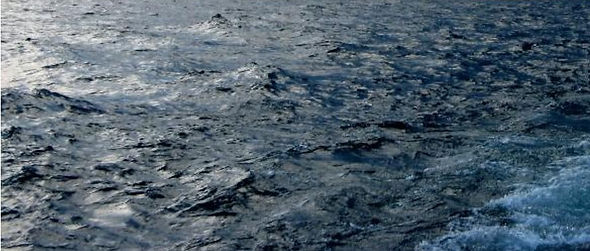
National Center for Cold Water Safety
Rule 1 / Case 6
Always Wear Your PFD (Lifejacket)
Brian Keese and Nathan Keese
March 27th, 2010 - Stockton Lake, Missouri
It was a warm Spring day when Brian Keese decided to take his 8 year old son Nathan for a ride in his 14 foot motor boat on Stockton Lake, but the water temperature was near freezing.
Most waves are created by wind blowing across the water, and wave height is determined by the strength of the wind, the distance over which it blows (called “fetch”) and the length of time that it blows. Stockton Lake is a large wishbone-shaped body of water with approximately 15 miles of open water on either arm, more than enough distance to create very rough conditions if the wind is blowing in the right direction. On the morning of the accident, the weather was reportedly calm.

However, conditions on the lake suddenly changed for the worse when a storm came through, and the rough water overwhelmed their small boat. Brian and Nathan weren’t dressed for the water temperature and to the surprise of friends and family members, neither was wearing a PFD, although there were two in the boat.

Rough conditions can overwhelm small boats
When they failed to return on time, a search found no sign of them, but recovered the two PFDs, which were found floating in the water. It took weeks for the bodies to surface. I the wake of the tragedy, family members launched the Brian & Nathan Keese Water Safety Organization which raised $25,000 in its first year, and has outlined a list of activities to keep the memory of the two alive. Chief among them are: raising awareness about using life jackets, the danger of hypothermia, and the problems that small boats can face in a windy body of water like Stockton Lake.
Case Note:
This is another tragic example of a sunny day luring a father and son out onto lethally cold water. Hypothermia didn’t have anything to do with the deaths of Brian and Nathan Keese. They were overwhelmed by cold shock and swimming failure long before hypothermia would have occurred.
Boaters should make a habit of checking the weather forecast before leaving shore. Many reports of fatal accidents and close calls note a sudden change in the weather. While it's true that the weather can change suddenly, storms don't appear out of nowhere, and mariners who check the forecast are warned in advance.